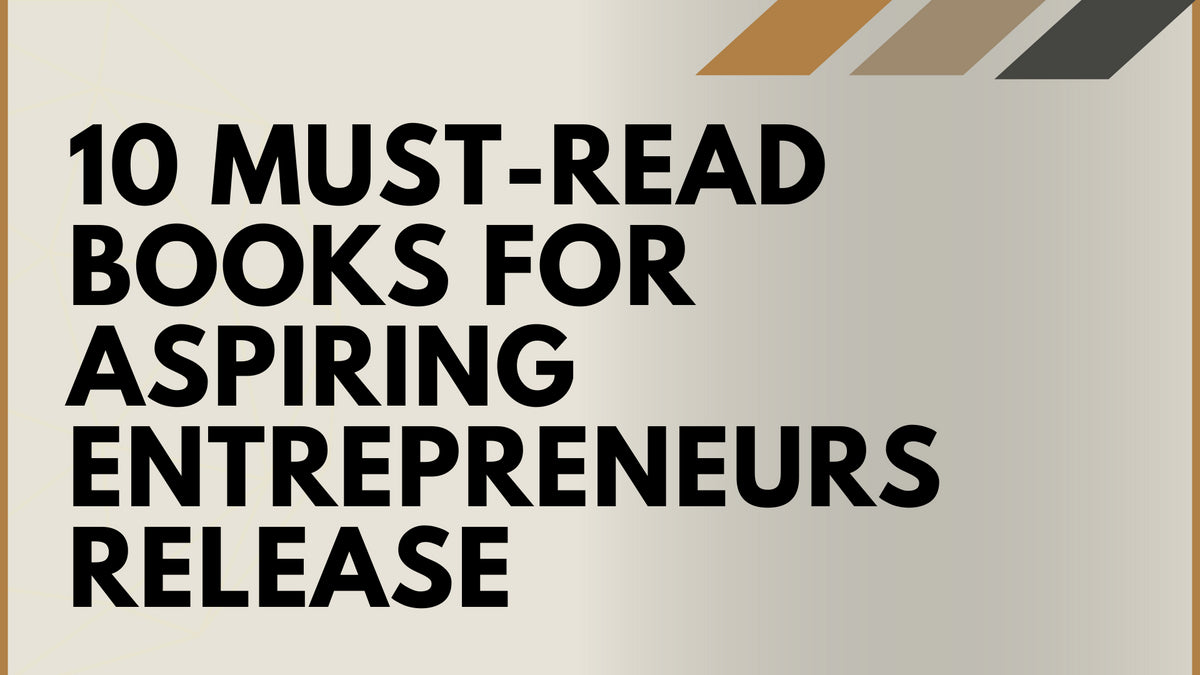Your Cart is Empty
Loonshots Book Summary: Innovative Ideas To Improve Business
Listen To This Article
Examples Of Creativity And Innovation In Business
Loonshots explores the world of disruptive business ideas and how organizations can best nurture them. The main takeaway of Loonshots is two-fold.Business is won and lost based on an organization's ability to successfully nurture and productize loonshots. A loonshot is an out of the box idea that radically changes the way an industry works, or even creates a new industry. Uber was a loonshot for the taxi industry. The smartphone was a loonshot for the mobile industry.
The creators of loonshots are often viewed as crazy and are forced to fight through miles of red tape to see their ideas realized. Safi argues that it is the inability of large organizations to nurture loonshots that causes them to be disrupted by the plucky startup. But there is also a tipping point where an organization must stop shooting for the loonshot and focus on stability as well. This is the change to a System mindset from a Outcome mindset.
Business Models And Kinds Of Innovation Strategy
- Why nurturing loonshots is important and examples of organizations that lost enormous amounts of market share because they failed to nurture loonshots - Nokia was given the concept for an internet capable phone and App Store. Dismissed it. 3 years later apple released the iPhone and Nokia sold their mobile business.
- How the structure of an organization contributes to its ability to nurture loonshots.
- Introduction of big data to the airline industry through Sabre and how knowing when people buy flights created the term Yield Management.
-
Rise and fall of Pan Am due to S type loonshots and deregulation.
- Why the job of a leader is to facilitate the transfer of information between artists and soldiers, and examples of the best facilitators in history.
- The book helps change the way you make decisions not what decisions are made.
-
Arrange systems so that success is more likely to be achieved over time.
- Smooth flow vs jammed flow.
- Learn about terms like: Percolation theory, Equal opportunity respect, Entropy, Power law, Theory of omission, Equity Fraction, Phase separation and dynamic equilibrium, Moses trap, and the Red Balloon Challenge.
- S and P type loonshots.

Featured In This Review
Loonshots
$15.69
Discover the amazing stories if disruptive innovation that changes industries, won wars, made millionaires and ruined reputations along with companies.
SHOP NOWLoonshots Book Summary
What is a loonshot? A loonshot is an idea that changes a company, industry, or even society by presenting a radically innovative product or solution to a problem. A loonshot is often seen as “too far out of the box” by established players in an industry and fails to receive funding and adoption.
Examples of loonshots include smartphones, statins, ride-sharing applications, and even social media. Those who successfully capitalized on these ideas made billions, while those who rejected the ideas found their organizations losing market share.
In Loonshots, author Safi Bahcall presents research on how organizations can best develop systems and a culture that successfully nurtures and productizes loonshots. In their early years, companies are loonshot hubs. Daring, innovative, willing to take on risks to try and land on the “next big thing”. As organizations grow they become more defensive. They slow down and become more risk-averse. Their aversion to risk and general lack of artistry cause them to miss the most important ideas. This point is made well in the book Good To Great through an example with Walgreens.

One of the biggest examples of an organization sealing their own fate through their inability to nurture loonshots resides in the story of Nokia. Years before Apple brought the iPhone to the market a team of engineers at Nokia came up with an idea for a touch screen smartphone that could be used to run mobile applications. Does the idea sound awfully familiar?
Nokia engineers had essentially invented the iPhone years before Apple. At the time, Nokia was the dominant player in the mobile space and had ample resources to put behind the idea. Instead of embracing it, Nokia executives dismissed the idea as “crazy” and failed to act. A few years later Apple released the initial version of the iPhone and Nokia watched its mobile market share begin to plunge. The organization has yet to recover. This point is further solidified in the legendary book Innovator's Dilemma as well.
Safi explores the idea that there are two different kinds of people and organizations. The “loonshot” based organization and the “franchise” based organization. Loonshot organizations are made up of artists. Artists dream incredibly big, love working without structure, and tend to enjoy highly creative, exploratory work.
Want to buy a book review like this?
Click here to learn how to get your book reviewed!
Franchise organizations are made up of soldiers. Soldiers like structure and establishing systems and processes that scale. As an idea moves from a loonshot (the first-ever touchscreen phone) to a franchise (the 10th iPhone) the idea transitions from being created by artists to being managed by soldiers. The iPhone is no longer a loonshot idea for Apple, it is now an established franchise. A great book on the kinds of people in organizations is Traction.

Safi makes the point that as organizations grow in size the artists tend to lose influence, while the soldiers tend to gain influence. Eventually, there are no more artists left and the organization finds itself in the position of a Nokia, rejecting the next greatest idea. Further reading on identifying great ideas can be found in the book Alchemy.
This book doesn’t just present problems, it gives solutions. Here are three of the most important ways organizations can nurture loonshots according to Safi:
Separation of artists & soldiers
We’ve established that artists and soldiers work differently. Artistry is open, innovative, and relies on plenty of failed experimentation. Soldiers create processes, eliminate errors, and have stricter guidelines on how to work.Since the artists and soldiers work so differently from each other, Safi argues that they should be kept separate. Teams of artists shouldn’t be forced to work like soldiers and teams of soldiers shouldn’t be forced to work like artists. Allowing the two kinds of teams to cultivate environments that suit them best allows an organization to embrace both loonshots and franchises. Separating things like this is a big part of the writings in the book E-Myth.
Manage the transfer of information between artists & soldiers
Though it’s best to keep artists and soldiers separate from each other, it doesn’t mean the two teams don’t need to collaborate. At some point, the wild idea of the artists needs to be productized. It needs a marketing campaign, a timeline, and the rigor of the soldiers to ensure that it actually makes it to the market.Outstanding leaders in organizations manage the transfer of knowledge between the artists and the soldiers. They nurture relationships between the two groups and do their best to avoid creating perverse incentive structures that cause the soldiers to reject the ideas of the artists. A great book that expands on this exact topic is The Messy Middle.
Process over outcomes
One of the toughest things to manage about loonshots is the fact that they don’t always work. The ideas are crazy by design. For every iPhone that generates trillions of dollars of revenue, there are 20 ideas that don’t pan out for a variety of reasons.

An organization that embraces outcomes rather than processes will naturally reject loonshots as they carry a higher failure rate. Safi makes the argument that organizations should strive to analyze the decision making processes that lead to outcomes, rather than the outcomes themselves. A good process can result in a bad outcome and a bad process can result in a good outcome. The book I Love Capitalism! talks about this related to the building of Home Depot.
By embracing the process rather than the outcome, companies can help ensure that loonshots aren’t passed over simply because they have a lower probability of success than franchises. A new VR play is going to be less likely to succeed than the iPhone 11, but it is still vitally important that Apple be willing to take risks with new products and technologies. A great book that talks all about being different and trying things is Sticky Branding
About The Author Safi Bahcall
Safi Bahcall is a biotechnology entrepreneur and former public company CEO. He received his BA summa cum laude from Harvard and has a Ph.D. in physics from Stanford where he worked on both particle physics and condensed matter physics. He was a Miller Fellow in physics at UC Berkeley.Safi has co-founded a biotech company developing new drugs for cancer. He led its IPO and worked as the CEO for 13 years.
Want to buy a book review like this?
Click here to learn how to get your book reviewed!
Leave a comment
Comments will be approved before showing up.
Also in Books

The Best Books for Google Analytics 4 (GA4) Training
Unlock the secrets of Google Analytics 4 with our curated list of the best GA4 training books for 2023! Dive deep into actionable insights, master advanced techniques, and lead the digital analytics revolution. Don't get left behind; discover the ultimate resources to dominate GA4. Click now to elevate your skills!
Read More
10 Must-Read Books for Aspiring Entrepreneurs
Do you dream of starting your own business? If so, you need to read this article! We've compiled a list of 10 must-read books for aspiring entrepreneurs. These books will provide you with the knowledge and inspiration you need to turn your dream into a reality. Click here to read the article and learn more!
Read More
Top 15 Books on Personal Finance
Are you looking for a safe and informative place to learn about personal finance? If so, you've come to the right place! This article discusses the top 15 personal finance books on the market, all of which are sure to help you improve your financial situation without any explicit sexual descriptions or that is sexually suggestive in nature or is primarily intended to cause arousal.
Read More